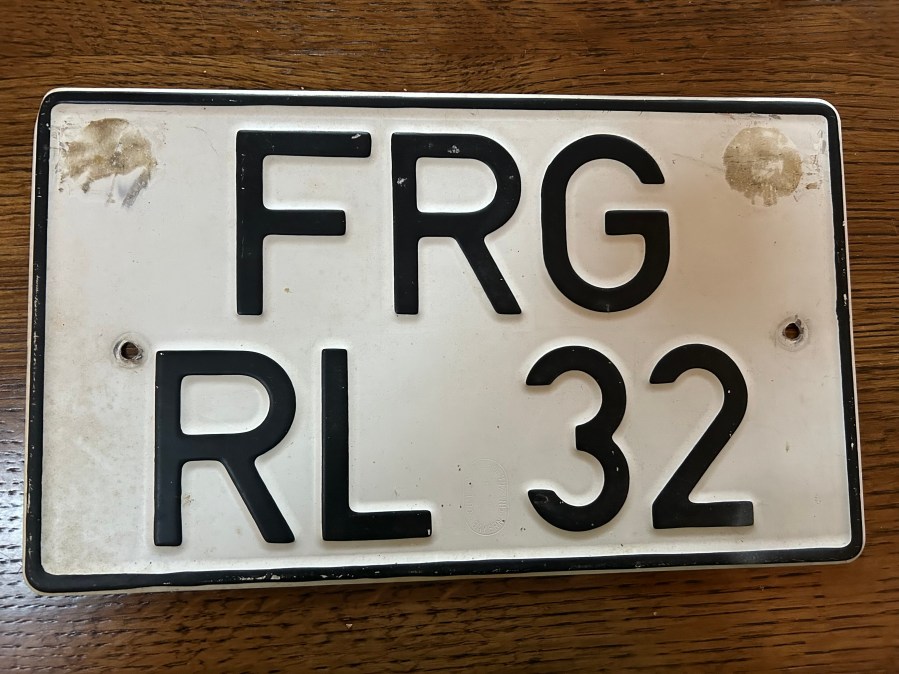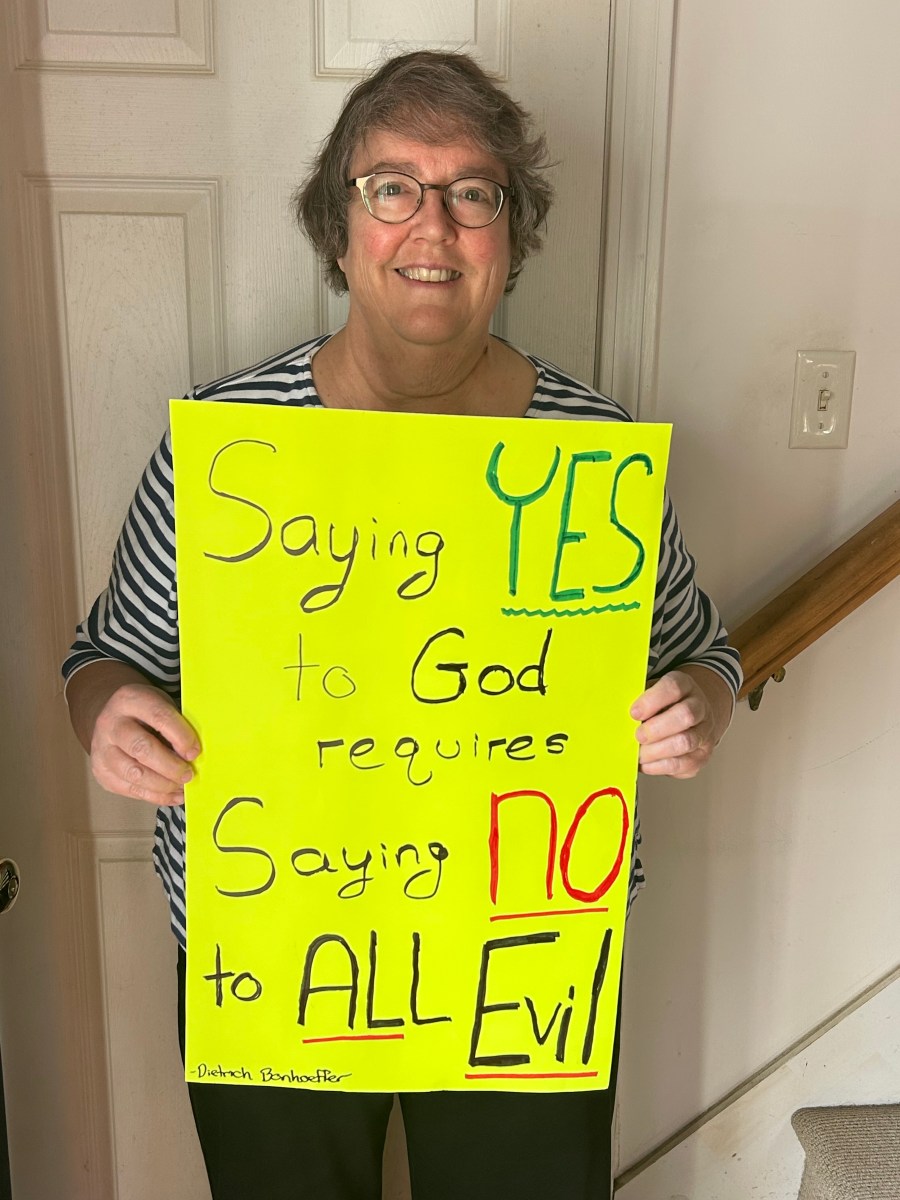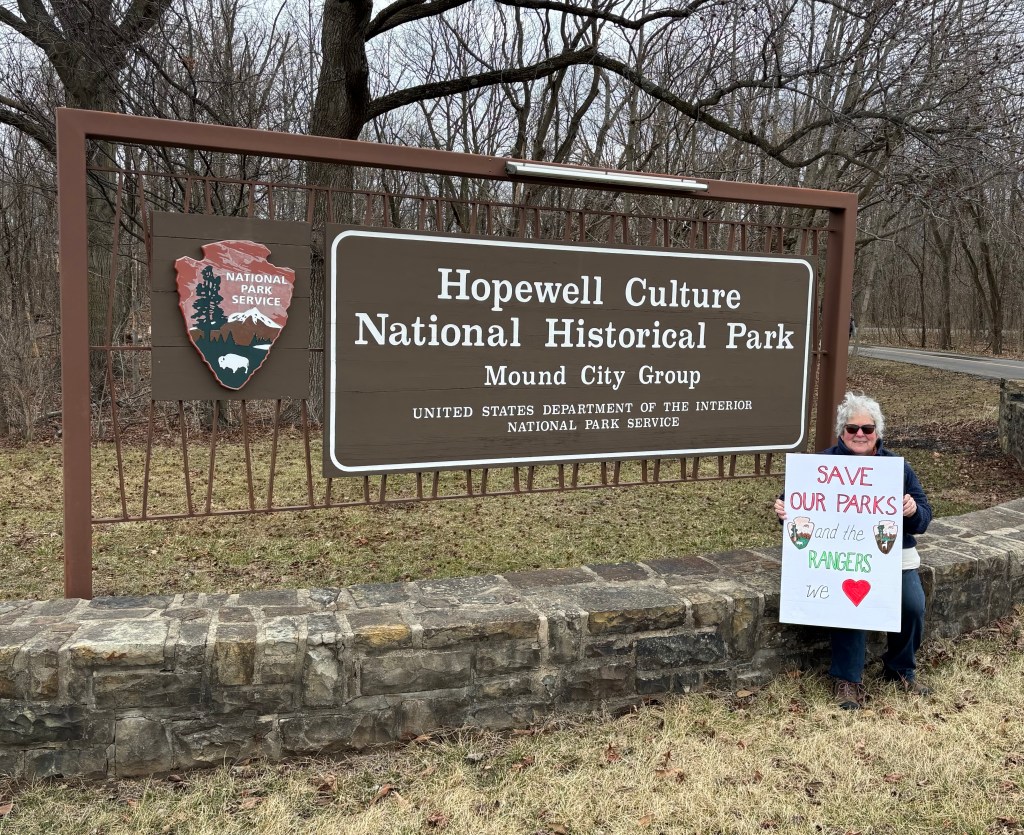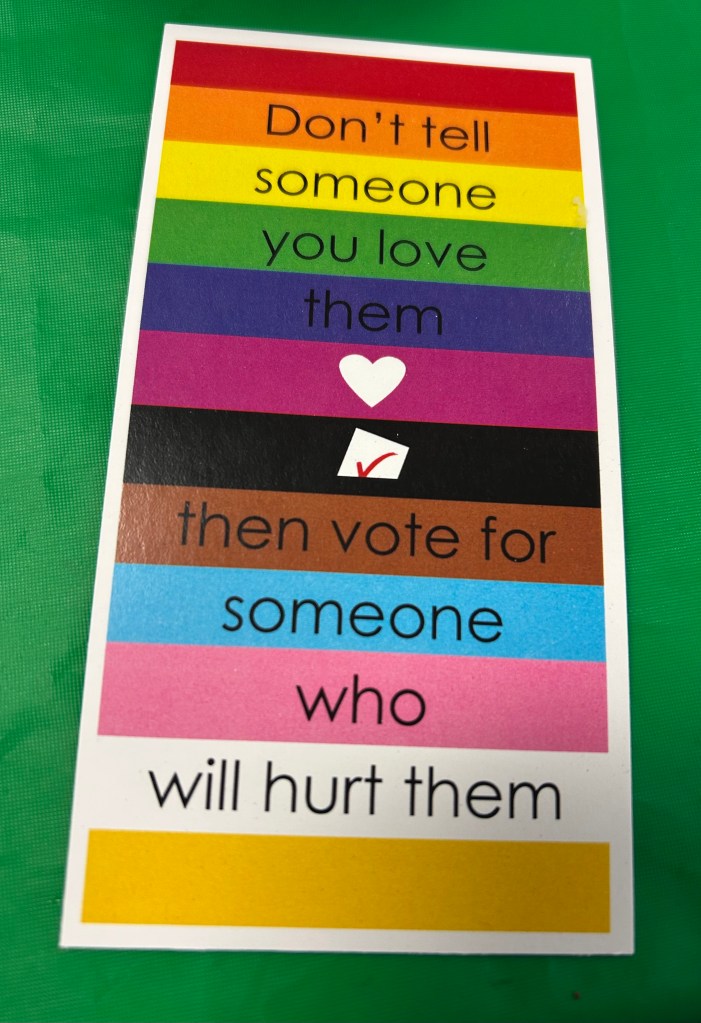Instead of reflecting on the horrors and upsets of the day’s news, I’m choosing to share an essay that I recently wrote for a writing class I’m taking. The assignment was to describe an object that reminds us of memories or a story from our lives. Here is my story. I invite you to look around your home and wonder – what objects holds special memories for me? I’d love to hear your stories…
License to Explore: When I look at the 12×12 inch square piece of white sheet metal that hangs on my wall, it reminds me of a tumultuous time of personal growth and adventure. It brings me back to a foundational season in my life that shaped my future.
That thin metal plaque is the license plate of the first car I ever bought on my own – a white Volkswagen Bug – when I was 22 years old and living and working in Germany. Looking at the simple design recalls emotions and experiences that would eventually lead to my call into ministry.
The bold black letters at the top – FRG – recall memories of the county (Freyung) where I lived, a rural area in eastern (West) Germany known for its crystal glass manufacturing. I can visualize the utilitarian office where I processed orders with four co-workers overlooking the factory where fabulous pieces of crystal glass were produced. Through the bank of windows, I could glimpse the glowing furnaces filled with molten glass that were drawn out to form mouth blown sparking lead crystal stemware or funneled into machines churning out thousands of elaborately cut vases, tumblers, and platters. Railroad containers stood at the ready, prepared to be filled and shipped around the world. Right out of college, I had moved abroad to enter the world of international business.
The license plate is a memento of all those big “firsts” I experienced. First car (a stickshift! Another first!), first apartment, first full time job, first serious boyfriend, first time on my own to navigate the wide world. For the first (and last) time, I had six weeks of paid vacation at my disposal, inviting me to adventures in and beyond central Europe. The licence plate stands as a testament to the joy I felt as I considered what seemed to be limitless possibilities.
It also brings back memories of turmoil and despair. It turned out that I was not cut out for the cutthroat nature of this particular business decades before the “Me Too” movement. The CEO was a vile, crude man who routinely criticized and mocked employees in front of their peers. He expected me to teach his mistress English so she could accompany him on trips abroad. Refusing was not an option. Too often people would emerge from his office shaken and in tears while refusing to describe what had been said or done.
Trips to international conventions that might have been enjoyable opportunities to explore new cities were instead long days of work filled with endless innuendos about after-hours gatherings. I learned to skip dinner and escape back to the safety of my hotel room before the drinking and carousing began. Before too many months went by it became clear that this was not the life path for me.
The license plate now stands as a symbol of escape. I remember driving my little Bug to the many hiking trails in the area. As I wandered the hills, I poured out my heart to the God I thought I had left behind in childhood. Long walks gave me the opportunity to wonder where I was supposed to be, what I was meant to do, and how I could make any difference in this world.
When I look at that license plate, I often wish I could talk with the 22 year old version of myself. I would offer reassurance that she was not the failure that she believed. I would remind her of the courage it took to go into an unknown situation thousands of miles from home long before cell phones or email. I would celebrate her strength and resilience as she survived the dissolution of her plans and rejoice in her ability to embark on yet another unknown future.



















